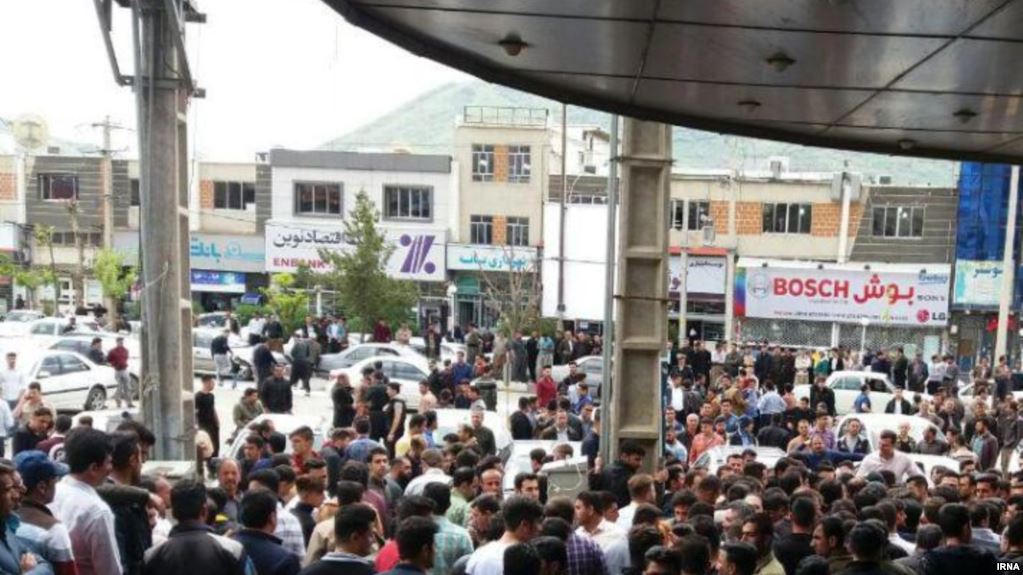Merchants On Strike In Iran’s Kurdistan As Border Closure Hurts Trade

Protests in the majority Kurdish regions of western Iran continued this week, with merchants going on strike to highlight the financial losses they’ve suffered since Iran closed the border with Iraqi Kurdistan last year, effectively blocking trade among Kurds from the neighboring countries.
There were no goods for sale in the bazaars in the cities of Baneh, Javanrood, Marivan, and Saqqez April 17, as merchants instead placed empty table cloths on the ground to symbolize their starvation as a result of the border closing.
Iran’s Kurdish merchants have long relied on “koolbars,” porters who carry huge packs of goods on their backs and cross the boarder on foot to supply them with goods not widely available in Iran, like alcohol, foreign clothing, and other consumer goods. Iran has quite strict and complicated import laws, one factor that fuels smuggling.
Villagers on the border have been engaged in this type of smuggling for years, and though illegal, it has propped up the economy of Iran’s Kurdish regions. In mid-2016 Iranian authorities announced they would issue special licenses to allow the koolbars to cross the border on foot legally, but in October 2017 Iran instead closed the border entirely, reportedly on the request of Baghdad. Kurdish rights groups say the border was closed in order to isolate and weaken Iraqi Kurds.
“Closing down the borders used by koolbars has put pressure on the business of the shopkeepers who sold their imported goods,” pro-Kurdish rights website, Kordpa, cited a merchant as saying.
Meanwhile, Mohsen Biglari, an MP from the city of Baneh, has warned, “As there are no alternative jobs in the mainly Kurdish populated regions in western Iran, closing down the border has disrupted the koolbars' activity and imposed great losses on local shopkeepers.”
On December 16, 2017, the Islamic Republic’s Interior Minister, Abdolreza Rahmani Fazli, declared that koolbars’ activities would be banned, and fifteen border markets opened to serve the local merchants instead.
However, Fazli admitted at the time that the proposed solution “has social and security consequences.”
Baneh’s Deputy Governor for Political Affairs Nejad Shahidi said April 15 that “foreign elements” have had a pivotal role in encouraging local merchants and shopkeepers to strike and hold protest rallies.
“A new plan has been devised by the Islamic Republic’s Supreme National Security Council for organizing border exchange and transactions in four regions bordering Iran’s neighbors,” Shahidi said, adding, “We have set a nine-day deadline for the shopkeepers and merchants to import whatever they need.”
But he went on to caution, “Military and police forces are present to contain protests in the streets and in front of the governor’s office.”